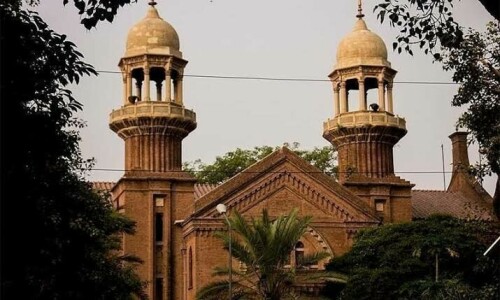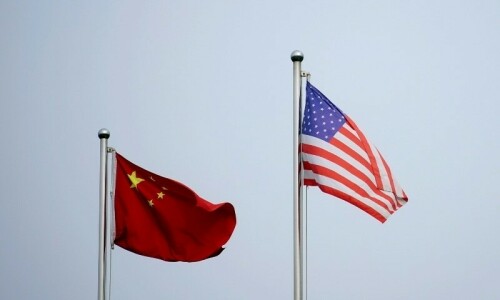
WASHINGTON: US officials called Thursday on Pakistan to crack down on the production of a common fertiliser, saying it was used to make bombs that have claimed the bulk of troop deaths in Afghanistan.
As the long-tense US-Pakistan relationship improves slightly, US officials credited Islamabad with taking the issue more seriously but said that much more needed to be done by authorities and producers of the fertiliser.
Calcium ammonium nitrate is responsible for more than 70 per cent of roadside bombs against coalition forces in Afghanistan despite a ban by Kabul on the fertiliser, Lieutenant General Michael Barbero told a Senate hearing.
Barbero, who heads a Defence Department unit that combats the bombs, said the Fatima Group, the Pakistani company that runs the factories, has been “less than cooperative” in discussions with the United States.
Senator Bob Casey, who put up pictures of maimed US soldiers at the hearing, said that Interior Minister Rehman Malik presented plans to prevent the bombs, known as improvised explosive devices, or IEDs, during an October visit to the United States.
“While I'm pleased that Pakistan has developed a very detailed and comprehensive set of plans to counter IEDs, let me be clear, it's time to finally and fully implement these plans,” Casey said.
“IED incidents have risen in Afghanistan. The flow of chemicals coming from across the border has not diminished,” said Casey, a member of President Barack Obama's Democratic Party from Pennsylvania.
Casey said that Pakistan, which has been torn for years by violence, had an interest in halting the fertiliser's misuse. Citing the US embassy, Casey said IEDs had killed 2,395 people inside Pakistan in the past year.
Casey called for restrictions on the sale of ammonium nitrate and a tracking system that charts the course of chemicals to distributors to buyers.
“Members of the fertiliser industry in Pakistan have the opportunity to be good corporate citizens. They should also understand that they are part of a broader global corporate community where reputations matter, just like they do here in Washington,” he said.
Barbero said the United States had requested that factories dye the calcium ammonium nitrate, which is milky white and can easily be disguised as detergent, so that border guards can detect it.
Ammonium nitrate is also produced in other nations, but virtually all found in Afghanistan has come from Pakistan, he said.
The fertiliser was also the chief component in the 1995 bombing of a federal building in Oklahoma City. In 2007, the US Congress passed a law that required registration of buyers.
Barbero said that US forces have also noticed the growing use by insurgents in Afghanistan of potassium chlorate, which he said was illegally imported into Pakistan to produce matches or for use in the textile industry.
State Department official Jonathan Carpenter said the United States has provided some $113 million to Pakistan since 2009 for efforts to counter the bombs and anticipated another $135 million from the most recent funding year.
The United States has long voiced frustration at what officials say remain strong links between elements of Pakistan's intelligence agency and Islamic militants operating in Afghanistan, particularly the Haqqani network.
Pakistan has defended its record, saying it has borne the brunt of the US war. Analysts widely believe that Pakistan's motivation is to preserve influence in Afghanistan in anticipation of the US withdrawal in 2014.













































Dear visitor, the comments section is undergoing an overhaul and will return soon.